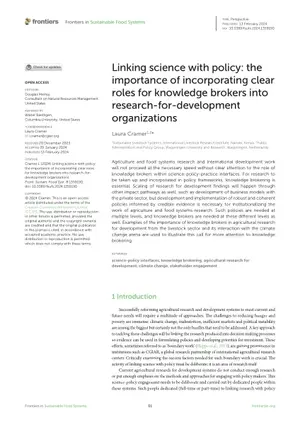
Agriculture can rein in greenhouse gas emissions ‘immediately’, say UN and CGIAR
Portrait of a Boran calf in Yabello, Borena, Oromia, Ethiopia (photo credit: ILRI/Camille Hanotte).
The global agricultural sector can curb emissions immediately and provide a window for fossil fuel-guzzling energy and transport sectors to decarbonise before global warming spirals out of control, the United Nations said on Friday (10 November).
‘”In the next few years . . . agriculture . . . could produce early results immediately, cost-effectively and all over the world”, René Castro of the UN’s Food and Agriculture Organisation (FAO) told the COP23 climate talks in Bonn. That will give energy and transport sectors time to switch to renewables “to really take us out of the precipice and the path we are going on, which is far beyond the goal of two degrees Celsius”, he said.
‘Global temperatures are expected to rise three degrees above pre-industrial levels under current plans to curb emissions. This is far above the goal enshrined in the 2015 Paris climate agreement, which limits warming to well below 2 degrees. . . .
‘”Agriculture is a large source of powerful greenhouse gases . . . but has great potential to store carbon and reduce greenhouse gases in our lifetime”, said Helena Molin Valdes, head of the Climate and Clean Air Coalition Secretariat.
‘Agriculture, forestry and changes in land use together produce 21% of global greenhouse gas emissions, making them the second largest emitter after the energy sector, according to FAO. At the same time, the global demand for food is expected to soar as the population is projected to grow to 9.7 billion people by 2050, up from 7.6 billion today.
‘”We need to feed them, and at the same time, we need to curb emissions from agriculture. . . . We think it’s doable”, Castro, FAO’s assistant director general, said on the sidelines of the UN talks.
Livestock account for nearly two-thirds of agriculture emissions, says FAO. But changes in the way livestock are raised have been successfully piloted and could be scaled up. . . .
Christian Schmidt, Germany’s federal minister of food and agriculture, said: “[Agriculture’s] potential to offer climate change solutions is enormous.”
‘Research conducted by the CGIAR Research Programme on Climate Change, Agriculture and Food Security (CCAFS) has already identified ten existing agricultural innovations with the potential to transform agriculture around the world in all of these ways. These include micro-irrigation systems powered by solar, stress-tolerant crop varieties, weather index-based agricultural insurance schemes and climate-informed advisories for rural populations.’
Read the whole article at EurActiv: Agriculture can rein in emissions ‘immediately’, says UN, 13 Nov 2017. The excerpts above were published in the 13 Nov 2017 issue of the Meridian Institute’s Agree News Feed.
Read more about the ten agricultural innovations that could transform today’s agriculture into climate-smart food production
At UN climate talks, agricultural research must be ‘at the epicenter’ of future climate financing solutions, CGIAR, 8 Nov 2017
10 innovations for climate action in agriculture, CGIAR, 23 Oct 2017, including two with livestock innovations at their core: index-based livestock insurance (Bonn climate talks: Insurance offers untapped opportunity to make smallholder agriculture climate resilient, CCAFS blog, 14 May 2017) and improved smallholder dairying (Better smallholder dairying for better incomes and climate resilience by and for the poor, ILRI Livestock Systems and Environment blog, 3 Nov 2017).
















